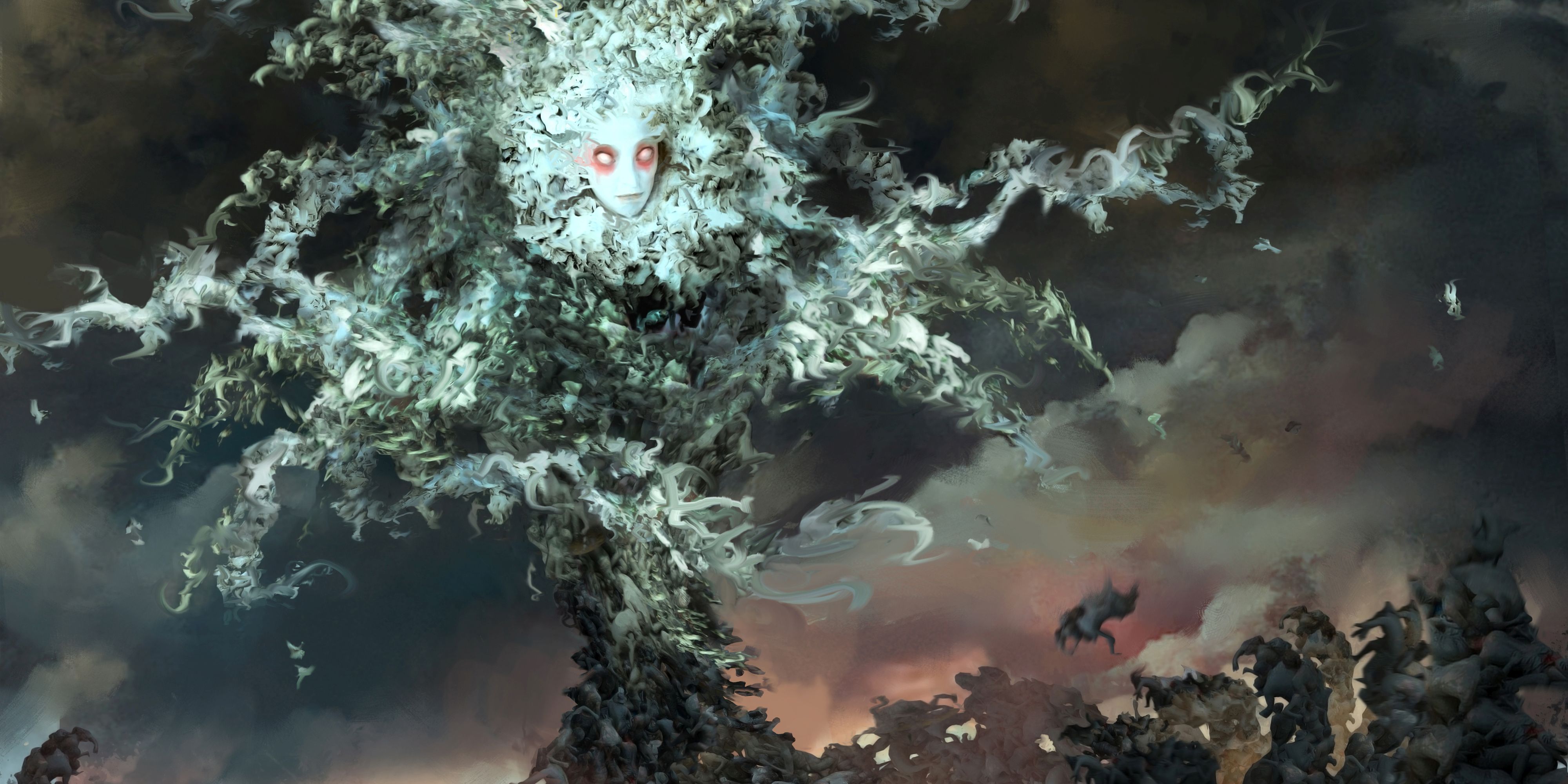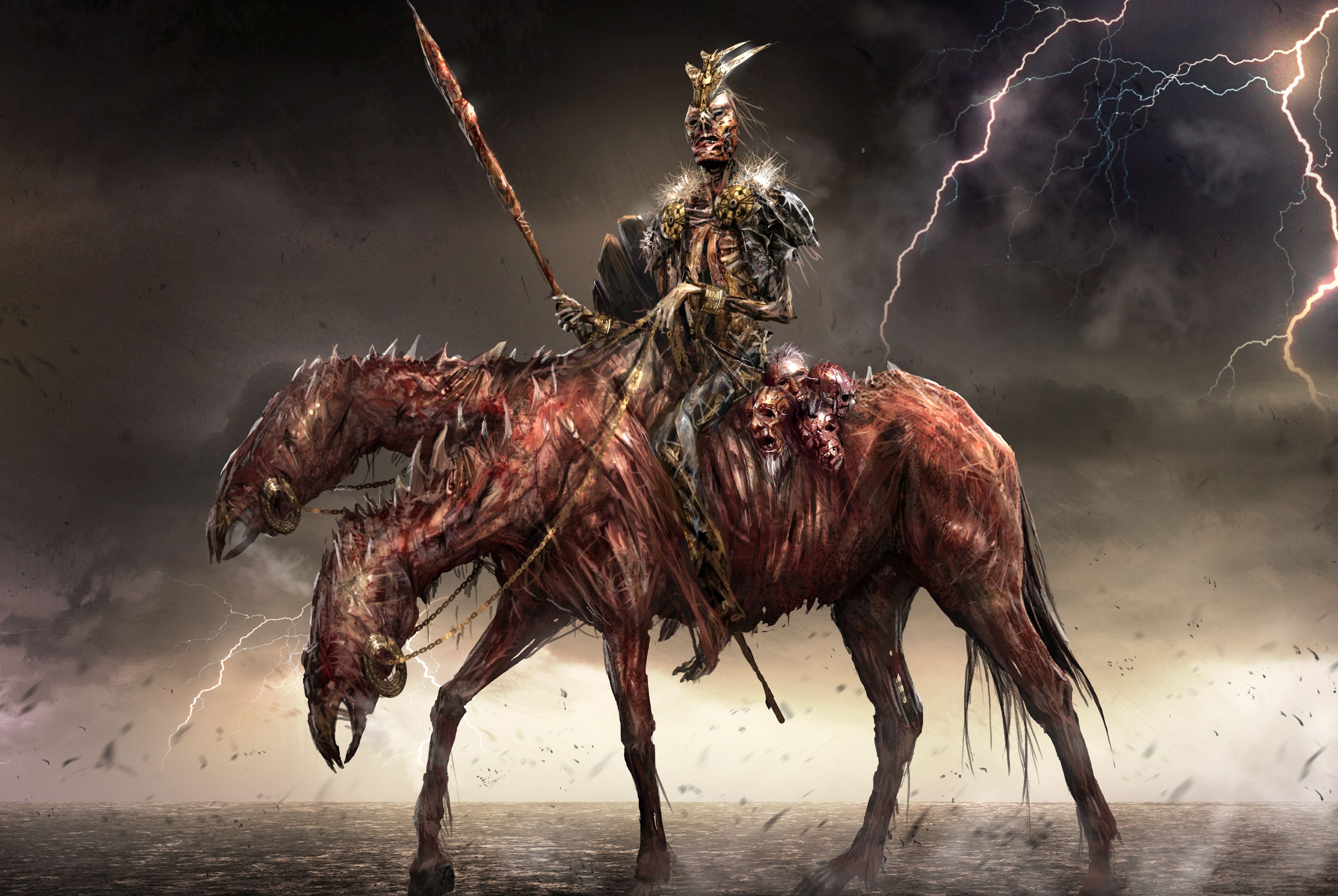Building Hellblade, Ninja Theory's gritty Norse brawler

Antoniades wants to make a choice-based story as well, even within the confines of the leaner budget. “In the past, our stories and levels have been linear because nothing more has been required from us,” he says. “Our cutscenes have been great but we’ve never explored interactive cutscenes or choice-based experiences—a publisher doesn’t necessarily want that. They want you to deliver the project and not take too many risks. You get a lot of resources and you solve problems with resources. This is totally the opposite. We have to create a new experience... otherwise what’s the point of being independent? The whole point of independent creativity is to create something that hasn’t been seen before. We know we’re good at combat, we know we can tell stories, but how do we tell stories within the world in a more open environment with more choices, in a way that hasn’t been told before? And incorporate combat into the mix in a way that feels like it’s part of the world, and not just a room encounter? This is the real challenge of the project. A lot of the other stuff is technical challenges and we’re dealing with that, and we’re pushing through it. But the creative challenge is very different.”
The PC is relatively new territory for Ninja Theory, but with this style of development, the ease of running open betas helps them solve a lot of the problems they couldn’t do with previous projects. “I think PC offers us a level of freedom that we haven’t had before. We’re looking at everything we do on this project and figuring out better ways of doing things compared to how the traditional console model works. And consoles are following suit with PC, but I think they’re about five years behind what things like Steam are doing. If we want to do an open beta right now, it’s a little bit trickier to do that than on PC... Playtesting is a huge thing for us. Usability testing, getting people hands-on to try things out, get feedback, then roll that back in and improve the game... it’s always been essential for us to do that. Not every publisher has let us, because of the secrecy that goes into consoles and publisher-based businesses. As an independent we have the freedom to do that.”
Hellblade will support 4K resolution and maybe even mods, too. “I think we want to get to the point where we can invite players and fans to add to the game, and do things that are unexpected, and suggest ideas or add-ons that can make the game richer.”

I find the nature of Hellblade’s development inspiring. There’s something guerrilla-like about a small team of Ninja Theory’s most experienced staff breaking away from bigger projects to make something where any potential success belongs entirely to them. At the same time, I’m left with further concerns about the future of big games, and publishers’ narrowing desire to take risks.
“When your first criteria is you should have the potential to sell 3-5 million units,” Antoniades says, “several things come off the table completely, straight away. Something like a melee-focused game comes off the table because all publishers have stats that tell you you cannot sell melee combat into those numbers. Creating fantastical worlds that aren’t based on existing IP are pretty much off the table.”
If Hellblade will find an audience anywhere, it’s on PC where a £40 game from a major publisher has as much chance of succeeding as anything else. By Ninja Theory’s calculations, 300,000 sales of Hellblade will mean the company breaks even. A million sales could change the way the company makes games entirely.
The overriding impression I get from the creation of Hellblade is, if you can make a quality game using these methods, why not do it? If the traditional model of development is no longer so viable to risk-averse and now schedule-starved publishers, why not use that same expertise without burning as much money? Just because no one (to my knowledge) has cleared out the chairs and tables to mo-cap in their boardroom before, that doesn’t mean it shouldn’t be done. Hellblade’s development is about finding more efficient ways to get the same results from a team of skilled veterans—I don’t doubt their passion, and I’d be curious to see if people who play Hellblade will even notice all the smoke and mirrors.
The biggest gaming news, reviews and hardware deals
Keep up to date with the most important stories and the best deals, as picked by the PC Gamer team.
“I think this is partly because I was a programmer for five years, so I’m used to the idea that you build things in an object-oriented way,” Antoniades explains. “You build kit parts that you can reuse, and then you work out a system for building things, and then you build out of that. So what Dan, for example, on environments is in charge of doing, is figuring out the system. However good his system ends up will define how big a world we can create. However big the world ends up being will determine what the gameplay experience will be. The critical path in this project is the people on it, not the design. My experience is that the way we have done things in the past requires a lot of people, and if we’re to do it a different way, if we’re going to have any hope of achieving this game on the budget and resources we have, we have to think very hard and deeply about our approach. And it’s radically different, and it’s a bit unknown. But I know we have a chance with the methods we’re using. With the old methods we wouldn’t have a chance.”


